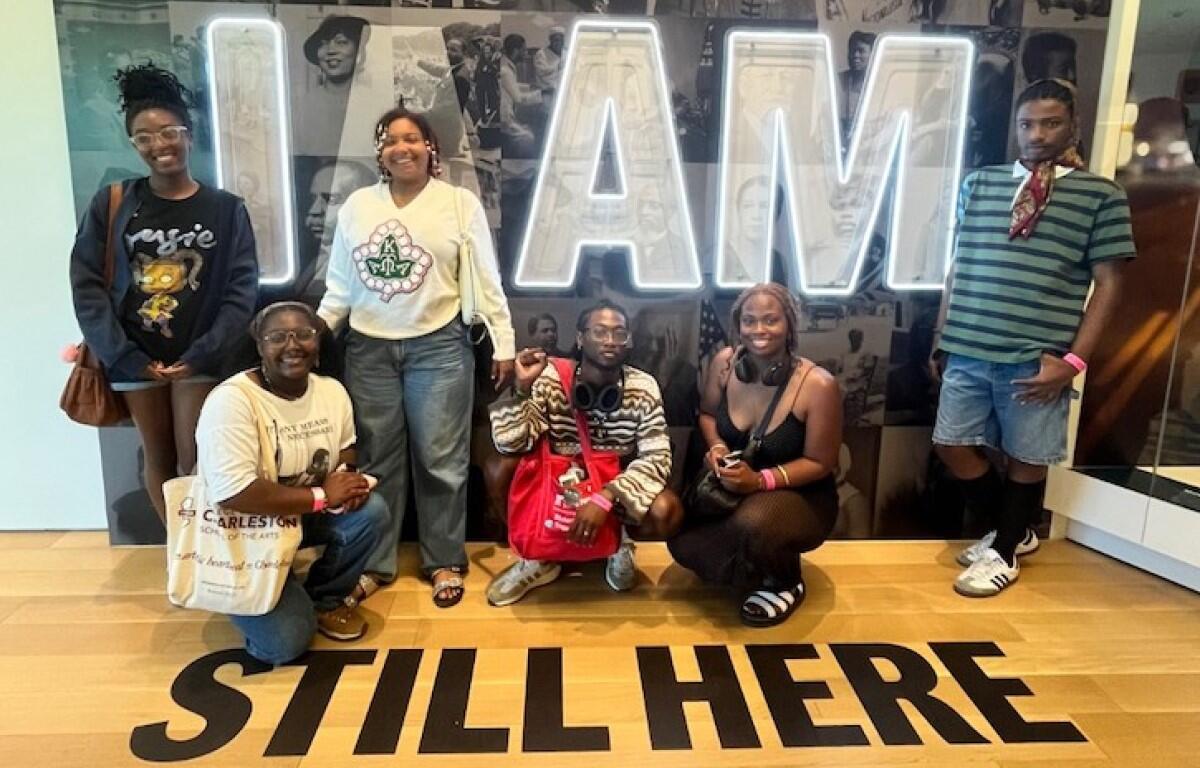CLARKSVILLE, TN − A group of Austin Peay State University students, led by Associate Professor Eboné Amos, recently traveled to South Carolina to explore the region’s African American history firsthand, immersing themselves in the cultural and historical significance of cities like Charleston.
The group visited sites such as the International African American Museum, McLeod Plantation, and Mitchellville, which was home to the first self-governing community of freed slaves during the Civil War.
“It’s one thing to read about [slavery], and it’s one thing to go on the Internet and have people argue whether it even existed,” Amos said. “It’s another thing to be standing on the land that is still preserved from that time. Seeing the records, hearing the stories.”
Amos said one of the main lessons she hoped her students would take away from the trip was a deeper sense of empathy, even without having personally experienced the events they learned about.
“The part of the trip that really stuck with me was the McLeod Plantation,” said student Jaylien Moothery. “It was really emotional to be there and hear the true testimonies and stories of so many people who actually suffered.”
Keyon St. Firmin, another student on the trip, said the bond the group formed along the way helped them connect and better understand the history of the region.
“It really felt like when you’re away with your cousins,” St. Firmin said. “We all looked after each other. We laughed together, we sang together, we cried together.”
Students like Moothery and St. Firmin were among the first to participate in Austin Peay’s new study away programming, which aims to expand access and exposure to diverse cultures, histories, and their ongoing significance.
“What made this special is that it was study away and not abroad, so the affordability was good,” Amos said. “We were able to secure funding to make it even more affordable for [students].”
Amos and her students shared a strong commitment to preserving and learning from African American history, emphasizing its crucial role in the ongoing fight for equality.
“It’s wildly important because there’s a reason why [people are] trying to erase this history,” Amos said. “It’s not pretty, but it shouldn’t mean that we can’t learn from it and do better.”
Moothery said historical experiences like slavery have often been ignored or overlooked, but that it is important to honor and remember the people who lived through them.
“These enslaved people, they probably thought nobody cared about them, what they were doing the next day, what they’re going to eat, how they’re going to survive,” Moothery said. “But I cared, and other people cared too.”


